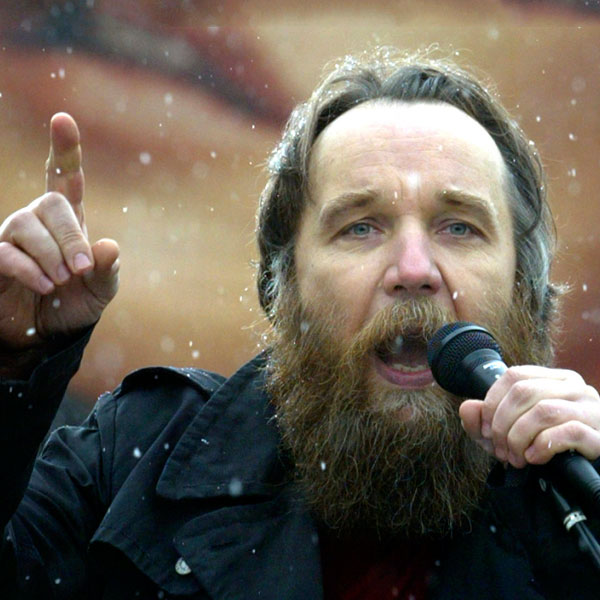Speaking of Rasputin, contemporary Russia has its own mysterious figure who wields political influence despite holding no official title. His name is Alexander Dugin, a bearded philosopher and Izborsky Club ideologue who’s made the grade in Kremlin inner circles after being expelled from his Moscow University department chair position for accusations of “encouraging genocide.”
An ardent enemy of liberal government, Dugin has long dreamed of an axis of Russia, Turkey and Iran wresting world leadership away from the U.S.–“American liberalism must be destroyed,” he’s said–though the outspoken fascist is hopeful of a closer relationship with our country since the ascendancy of Trump and Bannon, also enemies of democracy. Heaven help us. We’re retroactively losing the Cold War.
Dugin, the son of a Soviet military-intelligence official, said being independent makes him an effective go-between in matters of state. The 55-year-old rabble-rouser, blacklisted by the U.S. for aiding the insurgency in Ukraine, has no official post. But he has advised a member of Putin’s inner circle and written a textbook on geopolitics that’s been used by the military.
“I can talk to people like an official can’t,” Dugin said in his Moscow office at Tsargrad TV, where he’s a commentator and chief editor. “A diplomat says what he’s told. What does a military man say? Even less. And an intelligence officer? Nothing at all. You don’t understand where the truth lies. I speak from the perspective of geopolitics. That’s why the Turks started to trust me.”
Dugin, who’s been described as everything from an occult fascist to a mystical imperialist, lost his prestigious job running the sociology department at Moscow State University in 2014 after activists accused him of encouraging genocide. Thousands of people signed a petition calling for his removal after a rant in support of separatists in Ukraine in which he said, “kill, kill, kill.”
The Kremlin, which gave the prolific polemicist prominent airtime on the biggest networks to cheerlead during the annexation of Crimea in 2014, has kept him at arm’s length since he criticized Putin for not taking more of Ukraine. When asked if Dugin played a role in the detente with Turkey, Putin’s spokesman, Dmitry Peskov, said, “No.”
“He’s seen as a brilliant philosopher, but brilliance and madness are very close to each other,” said Sergei Markov, a political consultant to Putin’s staff. Even though Dugin’s not an official envoy, Markov said, “he appears to have given the Turks some very good advice.”•

